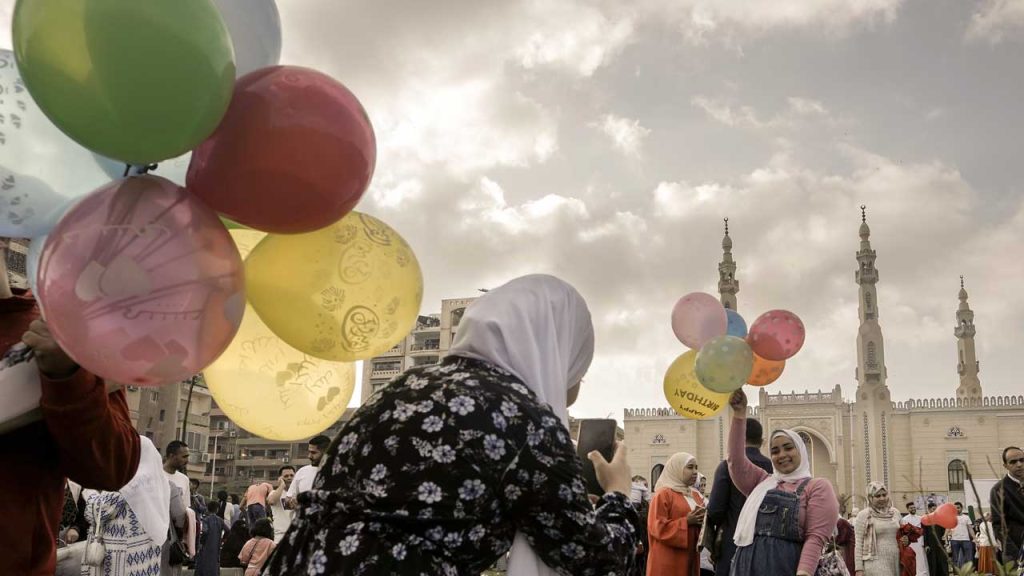Ramadan brings a sense of reflection and community, but it also shakes up our daily routines. From meal schedules to sleep patterns, everything changes for a month.
While the spiritual benefits make the adjustments worthwhile, it’s natural to miss the little comforts of pre-Ramadan life. As Eid approaches, anticipation builds—not just for celebrations but for the return of simple habits. Here are the things we can’t wait to enjoy again once we say goodbye to the holy month!
1. Savoring Breakfast and Morning Coffee Again


There’s something special about waking up and immediately enjoying a meal without watching the clock. No more waiting until sunset—breakfast is back where it belongs.
For many, that first cup of coffee in the morning is a ritual, a moment of peace before the day begins. After a month of adjusting to suhoor and breaking fast at Maghrib, getting back to normal eating times feels like a treat.
From warm foul and crispy manakish to eggs and freshly baked bread, we can’t wait for these breakfast classics to reclaim their spot in our routine.
2. Getting Back to a Normal Sleep Routine


Late nights, early mornings, and midday energy crashes—Ramadan sleep schedules are anything but consistent. Between staying up for suhoor, attending Taraweeh prayers, and pushing through work or school on minimal rest, exhaustion builds up.
When Ramadan ends, so does the struggle of balancing rest with late-night meals and early commitments. Sleeping at a reasonable hour and waking up without suhoor alarms brings a sense of normalcy. The body slowly resets, and the constant drowsiness fades, making it easier to feel refreshed throughout the day.
3. Enjoying Daytime Activities Without Feeling Drained


Fasting requires conserving energy, and that means cutting back on certain activities. The midday sun feels more intense, workouts are shorter (or skipped entirely), and even simple tasks like grocery shopping become tiring.
However, as soon as Ramadan ends, the freedom to go out and stay active without worrying about dehydration or low energy levels returns. Exercising at any time of day, running errands without exhaustion, and simply enjoying a walk in the afternoon sun all become effortless again!
4. Planning Weekend Getaways Without Restrictions


Ramadan weekends revolve around iftar plans and suhoor gatherings, leaving little room for spontaneous trips. After Eid, weekend getaways feel like a breath of fresh air.
Whether it’s a road trip to the beach, a relaxing brunch with friends, or a last-minute staycation, planning outings becomes easier. With no need to plan meals around fasting hours, weekends feel carefree again, bringing back the freedom to travel and explore.
5. No More Iftar Traffic Jams


Few things test patience, like the mad rush before Maghrib. Every driver is in a hurry; every street is packed, and the stress of getting home before the adhan feels like a daily race.
Once Ramadan ends, the roads breathe again. The predictable evening traffic fades, and going out doesn’t require planning around iftar anymore. Public transportation also returns to its usual flow, making commutes and errands much easier. After a month of navigating the iftar rush, the simple act of driving without urgency feels like a luxury.
A Return to Routine
As much as we look forward to these comforts, Ramadan leaves behind valuable lessons. The month teaches patience, gratitude, and self-discipline—things worth holding onto long after Eid.
While routines go back to normal, the mindset of balance and appreciation should stay. Enjoying morning coffee and weekend adventures again is a gift, but the spirit of mindfulness that Ramadan brings should carry on throughout the year!
WE ALSO SAID: Don’t Miss…5 Ramadan Habits Worth Keeping All Year Long



